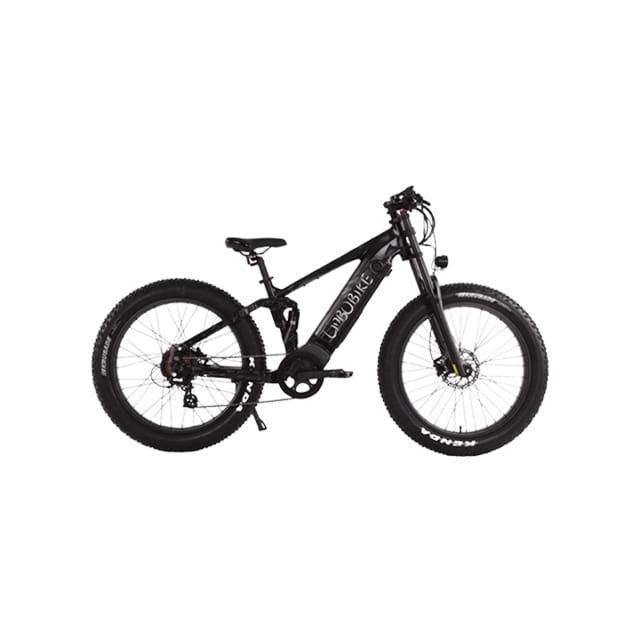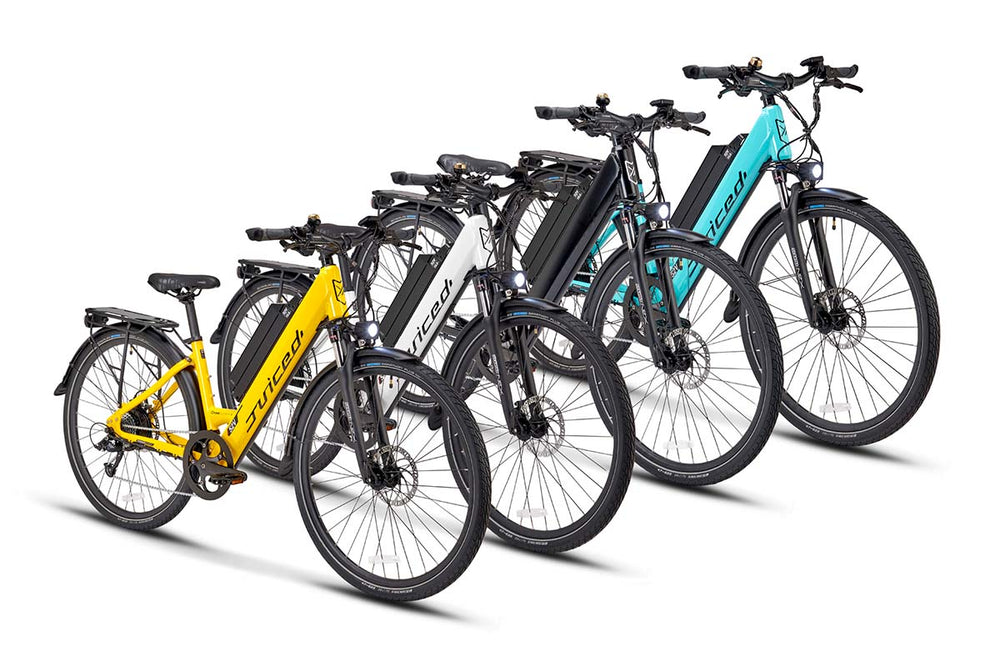T: +86-579-82635008
E: linbosales@linbotech.cn
E: linbosales@linbotech.cn
NO.259 KeChang Street,Wucheng District, Jinhua, Zhejiang,321000,P.R.China Zhejiang Linbo Transportation Technologies Co., Ltd.
Views: 0 Author: Site Editor Publish Time: 2025-07-11 Origin: Site








Electric bikes (e-bikes) are rapidly gaining popularity as an alternative to traditional commuting methods. With their eco-friendly appeal and convenience, many are considering if they can replace cars or regular bikes for daily use. In this post, we’ll explore whether an e-bike is a viable choice for your daily ride to work, examining the benefits and practical considerations involved.

Environmental Benefits: E-bikes produce zero emissions, making them an eco-friendly alternative to gas-powered vehicles. By choosing an e-bike, you’re reducing your carbon footprint and helping the planet.
Cost-Effectiveness: An e-bike is much cheaper to maintain than a car. You’ll save on gas, parking fees, and public transport costs. Plus, fewer repairs are needed compared to a traditional car.
Health Benefits: Even though e-bikes are motor-assisted, they still provide a good workout. You can enjoy moderate physical exercise that improves cardiovascular health while commuting to work.
Time Savings: E-bikes allow you to bypass traffic jams and use bike lanes, reducing your commute time. You can travel faster than traditional bicycles, and even beat buses and cars in crowded areas.
Enjoyable Ride: E-bikes offer a smooth and fun experience. The pedal-assist feature lets you ride at your own pace, ensuring comfort during your daily commute without breaking a sweat.
Electric bikes (e-bikes) offer several features that make them a great choice for daily commuting. Here are the key elements to consider:
E-bikes come with pedal assist, which provides motor support as you pedal. This feature helps you maintain speed without overexerting yourself, especially when navigating through traffic or on longer rides. The throttle mode allows you to ride without pedaling, giving you extra comfort when you're tired.
Battery life is crucial for commuting. Choose an e-bike with a battery that suits your daily travel needs. Most e-bikes offer ranges of 20-60 miles on a single charge, so consider how far your commute is to ensure you won't run out of power mid-ride.
The motor power plays a vital role in making your commute easier. A powerful motor helps you climb hills and maintain speed on long rides, ensuring you don’t tire out quickly. A motor with 250W to 750W is typically sufficient for most commuting scenarios.
E-bikes offer great convenience. Unlike cars, you don’t need to worry about parking fees or finding a spot. Simply park your bike at a bike rack, and you're done. Additionally, e-bikes eliminate the need for gas stations and allow you to bypass traffic, making your commute faster and more enjoyable.

When considering an e-bike for your daily commute, the first thing to evaluate is how far you need to travel.
E-Bike Range Considerations: Most e-bikes offer a range of 20-60 miles on a full charge, depending on the model, terrain, and how much assist you use.
Can It Handle Your Daily Commute?: If your commute is within this range, an e-bike could be a perfect fit. However, make sure your route doesn’t exceed the bike's battery capacity.
Choosing the Right Model: Pick an e-bike that suits your route's distance and terrain. If you face steep hills or need to travel long distances, look for models with higher motor power and larger batteries.
E-bikes are a great fit for urban commutes, especially in cities with bike lanes and bike-friendly infrastructure. They allow riders to bypass traffic, taking advantage of quicker routes and dedicated paths. In contrast, rural routes can present more challenges, such as uneven terrain, dirt roads, and fewer charging stations. However, e-bikes designed for off-road use, with robust motors and durable tires, can handle rougher rural conditions.
Weather plays a major role in e-bike performance. In rainy or snowy conditions, riders need to be cautious. E-bikes equipped with fenders, waterproof battery compartments, and durable tires offer better weather resistance. In hot climates, the motor and battery may need extra care, as high temperatures can impact performance. Riders should ensure their e-bike is suitable for their local weather.
The type of road you ride on significantly affects e-bike performance. Urban commutes with paved roads require less suspension, while rural routes, with their hills and rough roads, benefit from models with suspension forks, wide tires, and high-torque motors. E-bikes with adjustable suspension settings can adapt to both terrains, offering a smooth ride wherever you go.
Before jumping into the world of e-bikes, there are a few essential factors to think about. Each of these will impact how well an e-bike suits your commute needs.
Motor Type and Power
Electric bikes generally use either hub-drive or mid-drive motors. Hub-drive motors are ideal for flat terrain, while mid-drive motors provide better performance on hills by assisting directly with the bike's drivetrain. Choose based on your route's terrain.
Battery Life and Charging
Battery capacity determines how far you can ride. A typical e-bike range is 20-60 miles per charge. Consider how often you’ll need to recharge and plan accordingly, especially if your commute exceeds the battery’s range. Look for models with removable batteries for easy charging.
Comfort
Riding comfort is crucial for long commutes. Pay attention to ergonomics, such as the seat design, handlebar height, and suspension. A well-designed bike will make the ride more pleasant and reduce fatigue over long distances.
Weather Protection
If you plan to ride in various weather conditions, ensure your bike has suitable protection. Look for waterproof clothing, fenders, and even heated grips for cold days. Stay prepared for rain or wind with the right gear to ensure a comfortable ride year-round.
When selecting an electric bike for commuting, there are a few key factors to consider:
Motor Power & Torque: You need sufficient motor power to handle hills and maintain a steady speed, especially in urban environments. Look for a motor that offers at least 250W of power for smooth rides.
Battery Capacity: Consider the distance you'll commute each day. Choose an e-bike with a battery that offers a range of 20-60 miles on a single charge, ensuring it covers your daily commute with room to spare.
Comfort Features: A comfortable ride is essential for daily commuting. Look for bikes with good suspension, wide tires for better traction, and comfortable seating to minimize strain on your body.
Budget: E-bikes come at various price points. It’s essential to find a balance between features and cost. Don’t forget to consider long-term costs like maintenance and battery replacement.
Portability: If you need to transport your e-bike or store it in tight spaces, consider a lightweight or foldable model. This will make it easier to carry or store when not in use.
Choosing the right e-bike ensures that your daily commute is comfortable, efficient, and enjoyable.
While e-bikes are a great commuting option, there are some challenges to consider.
Weather and Environmental Factors: Riding in harsh weather, like rain or snow, can be tricky. Make sure to invest in waterproof gear, like rain covers and appropriate clothing. Riding in cold weather can also affect battery performance, so plan accordingly.
Maintenance: E-bikes need regular maintenance, especially when used daily. Check the motor, battery, and brakes regularly. Tires, gears, and chains also wear out over time. You might need to service your bike every few months depending on usage.
Battery Lifespan and Replacement: A typical e-bike battery lasts around 2-5 years. Over time, its performance may degrade, leading to shorter range. Replacing a battery can be costly, often ranging from $200 to $800, depending on the model.
Safety: Safety should always be a priority. Wear a helmet, use lights, and follow traffic laws. Since e-bikes can reach higher speeds, be extra cautious on busy roads and always be aware of your surroundings.
Cost Comparison:
Cars come with high expenses, including gas, insurance, and maintenance. In contrast, e-bikes have lower operational costs. You’ll save money on fuel and parking fees, and maintenance costs are significantly lower for e-bikes than for cars.
Time Efficiency:
E-bikes can cut down commuting time by avoiding traffic jams. Unlike cars, which may get stuck in congestion, e-bikes can use bike lanes, allowing for quicker and more predictable travel. Plus, there's no need to search for a parking spot.
Flexibility:
E-bikes are more flexible when it comes to parking and route options. You can park your e-bike at designated bike racks or even bring it inside your workplace, saving time. Unlike cars, you won't have to deal with expensive parking fees or long searches for a space.
Exercise vs. Convenience:
While a regular bike offers great exercise, an e-bike provides the same cycling experience without the intense physical effort. With pedal assist, you can still get a workout but with less strain, making it ideal for longer commutes or challenging terrains.
Speed and Efficiency:
E-bikes are generally faster than regular bicycles due to the electric motor assistance. On average, you can reach speeds of up to 28 mph on an e-bike, significantly cutting down commute time compared to traditional cycling, which averages around 10-15 mph.
When considering using an electric bike for daily commuting, safety should always come first. E-bikes offer a faster, more efficient ride, but riders must take precautions to ensure a safe journey.
Helmet Use:
Wearing a helmet is a must. It’s your first line of defense in case of accidents. Helmets protect against head injuries and are required by law in many areas.
Riding Skills:
Learning basic e-bike riding skills is essential. Start by practicing in low-traffic areas to build your confidence. Always keep both hands on the handlebars, and master braking and cornering techniques.
Visibility:
Ensure you're visible to other road users, especially at night. Use front and rear lights, reflective vests, and other high-visibility gear to stay safe. E-bike riders are often less noticeable than cars, so this is crucial.
Traffic Laws:
Familiarize yourself with the traffic laws for e-bikes in your area. Rules vary by location and can include speed limits, where you can ride, and whether you need to wear a helmet. Following the rules ensures safety for everyone.
Electric bicycles offer many benefits for daily commuting, such as speed, cost savings, and environmental friendliness. However, safety, local laws, and personal preferences should be considered before making the switch.
Consider testing an e-bike to see if it suits your commute. It's a great way to enjoy a greener, more efficient, and fun transportation option.
A: Yes, in most areas, e-bikes are allowed on public roads. However, specific rules may vary by location, so it's important to check local regulations.
A: E-bikes typically reach speeds of 20-28 mph, depending on the model and local regulations, making them a fast and efficient commuting option.
A: Regular maintenance includes checking tire pressure, cleaning the chain, and charging the battery. Periodic servicing ensures the motor and brakes function properly.
A: Yes, e-bike laws differ by area. Common rules include speed limits, helmet requirements, and where e-bikes can be ridden. Always research local laws before riding.
Find out how an electric bike can transform your daily commute. Explore the advantages and key considerations today.